Diplomats and Dictators
Hello! My name is Elizabeth, and I'm one of the students on the World Government program in Brussels. This group has had an abundance of experiences to reflect on, but our time at the Parlamentarium today was one of the most invigorating yet. Any student interested in government dreams of one day taking part in a debate in an organization such as the EU, but today we were able to actually do so.
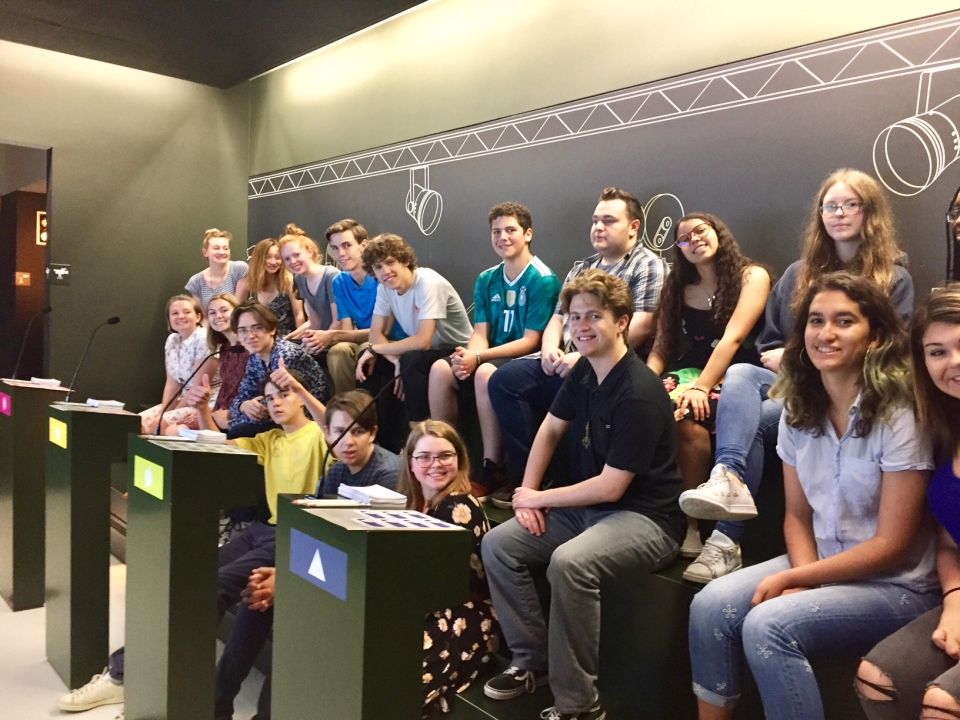
Upon arrival to our role play game, we were greeted with a row of podiums and microphones, a wall of phones with our names on the screen, and a series of dark rooms. After we had been given a long list of instructions, we picked up our phones. Each had our name, a symbol (representing a political party), and the flag of the country we would be representing. After a short video introduction about the EUs innerworkings, we got the first instruction on our phones that guided us to our first stop. We met with our party in one of the previously dark rooms, now illuminated to show the individual cubicles painted various colors to represent the different parties.
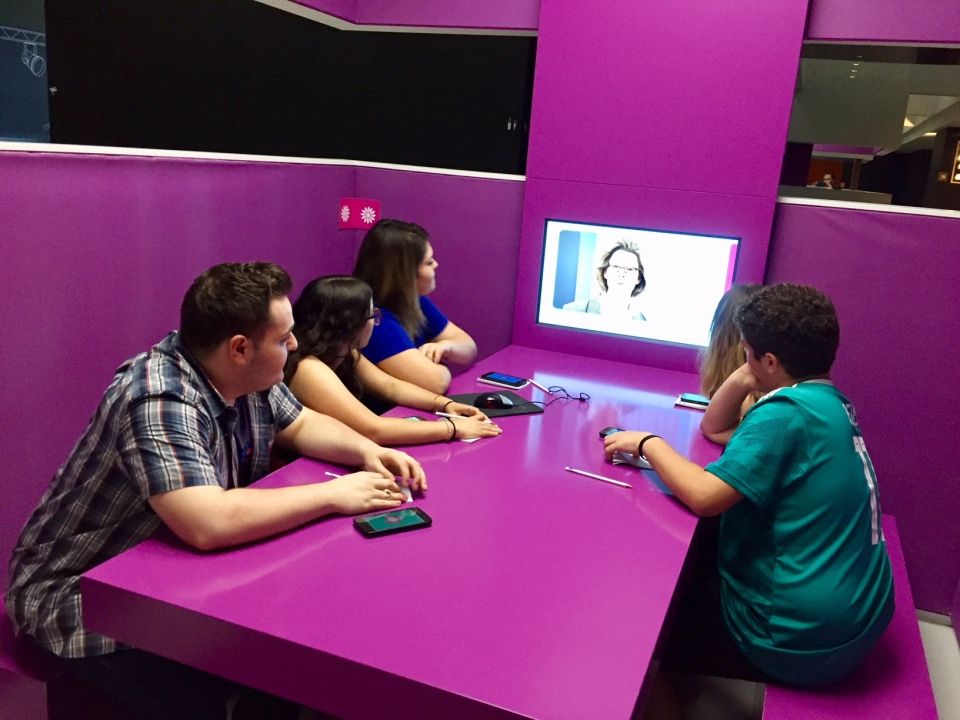
Once with our parties we were instructed to watch a video about the views and values we were supposed to represent in order to vote and press legislation that reflected the vision of the party. After the video, groups broke into heated discussions about how we could impose our values when brought to a vote, and how to interpret the presented directives from the viewpoint of our party. The two directives (legislation/proposals) were the implementation of microchips in humans, as well as a legislation to improve water availbility in Europe. By being assigned parties and countries, we were forced to expand our thinking past what we normally would, and effectively place ourselves in someone elses shoes. This is at the core of our curriculum, and is one of the fundamental aspects of MUN that we are all striving to learn. It is often hard to think outside of the American, Western, or other identity boxes that we are so used to, but when we expand our horizons, we inherently become better global citizens.
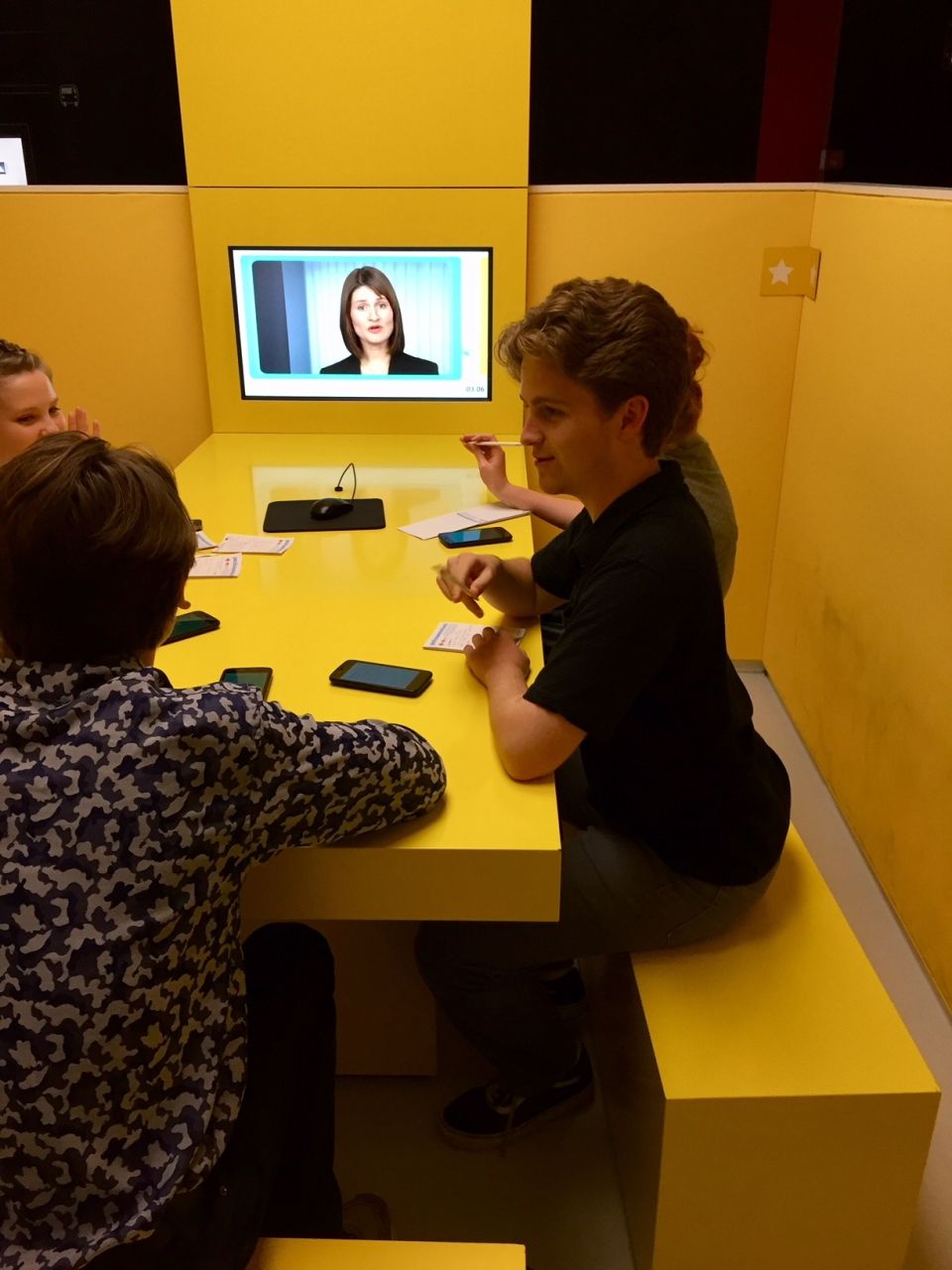
After connecting our assumed values to the issues at hand, we went our seperate ways to "talk" to citizens with various roles in the European community. This involved moving from various stations with screens that allowed us to hold a conversation with citizens by responding to their questions with a choice between two given replies, or simply read information provided by researchers. This was a helpful way to inform our views and also understand one aspect at the heart of politics: the people that elected us. By listening to concerned citizens and their views in relation to the various topics, we could ensure that we would be fulfilling our duty to represent those who voted for us.
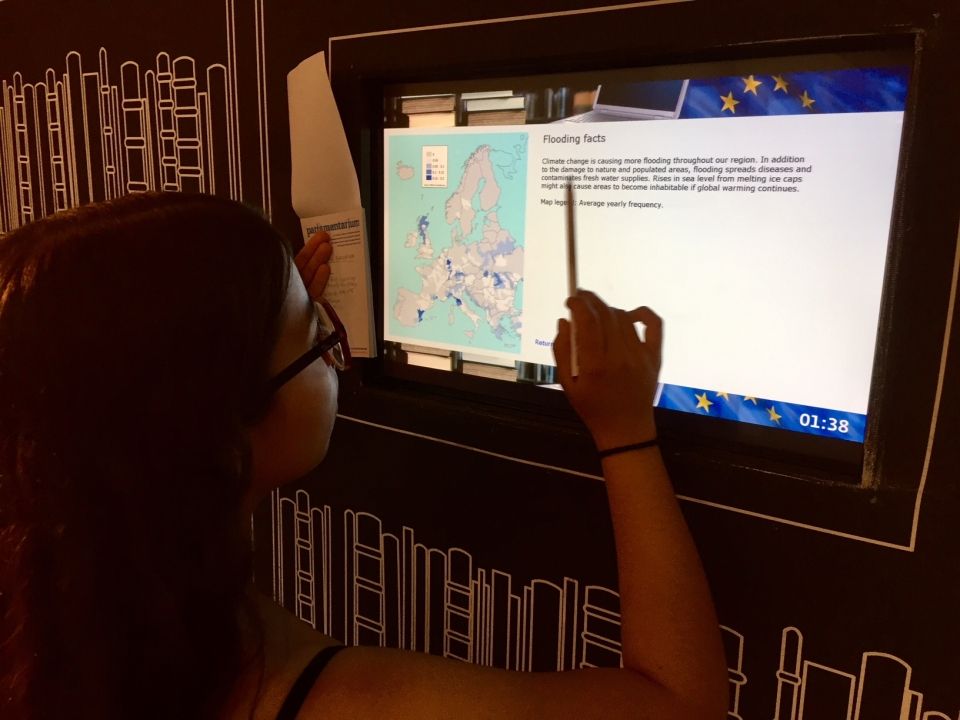
Now we're getting to the end of this 2.5 hour challenge, though it had only felt like minutes have passed. Once we finished speaking to citizens, we were merged into groups of representatives from each party based on which directive they were debating for or against. This lead to heated debate, but also enabled us to understand another cornerstone of politics: compromise. We each had our own agendas to fight for, but after a few minutes of heated yelling, we realized nothing would get passed if we didn't give or take various aspects of the directive. After coming to an array of compromises on various aspects of the directive, we had to present our amendments to the rest of the Parliament (our peers). This involved a variety of speeches in which the true colors of many were revealed. Some took a more calm approach, citing the importance of civil liberties or the beauty of the compromise that we had come to. Others took a much harsher approach, stating that their party's solution was superior, and that all others should not be equally considered. Regardless, compromise was integral to both issues, and was especially prominent once we voted on the directives. However, the struggle with compromise was not yet over. Another aspect of the EU system that was incorporated into our challenge was the communication between the Council of Ministers and the Parliament. If the Council doesn't agree with certain aspects of the directive amended previously by the Parliament, the directive will not pass. So although we had come to a compromise amongst ourselves, we were immediately faced with disagreement from the Council. Thus, we were back at the drawing board. But, this time, we were well-versed in the art of compromise. Without any yelling or angry debate, the microchip group was able to come to a compromise that the Council and the Parliament could agree on. This was once again followed by polarizing speeches in which representatives either screeched into the microphone or calmly stated their points. Our differences gave us a better understandings of each other and ourselves, as well as how we function in a multilateral organization.
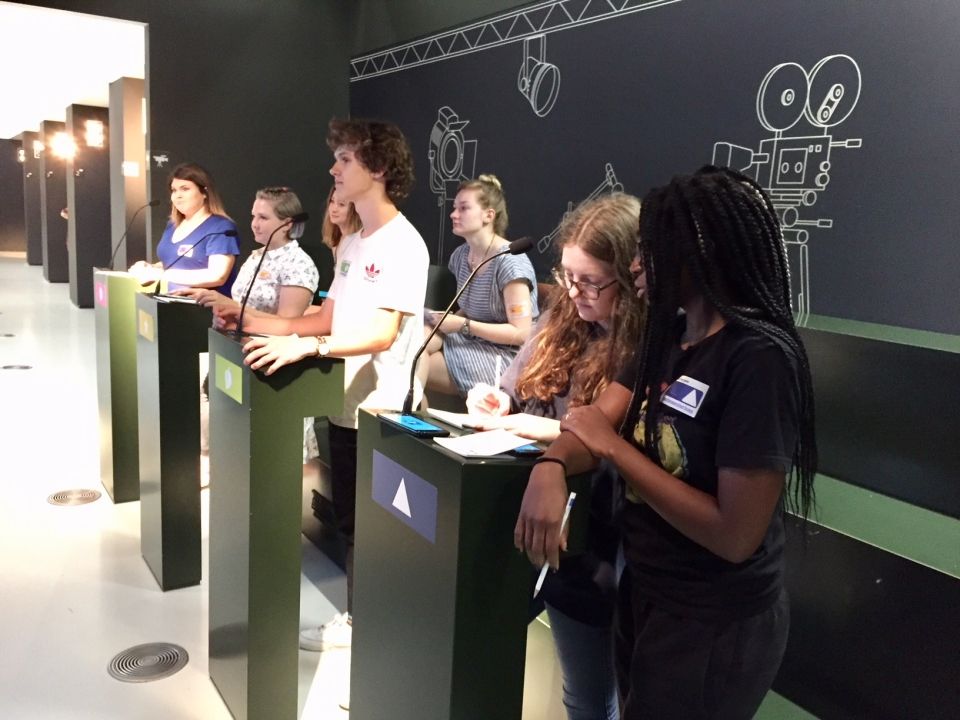
This was undeniably a strenuous process, which was even harder to put into words. The whole experience kept us on our toes, both physically and mentally. We dealt with key characteristics of debate and politics that many have never had the chance to experience or even understand. At the end of the day, we gained many valuable lessons. First, we learned the importance of compromise. Though teenagers can often be stubborn, when it comes to the wellfare of 500 million people, you cannot refuse other proposed solutions, or else progression will be significantly stunted. Second, that there is no such thing as a clean debate, and that is not necessarily a bad thing. It was clear that there were stark differences between my peers, but those differences were a driving force in our mutual desire for the betterment of our union. Each culture, country, and person are different, and those differences are what make the EU such an outstanding organization. By hearing out other opinions and perspectives, we felt as though our amendments were able to better fit the needs and wants of every EU citizen. Lastly, the importance of our values. Despite heated debate, a fair bit of arguing, and a range of agendas, we all shared the common goal of prioritizing human rights. Both issues incorporated the topic of civil liberties and freedoms, as well as how they can possibly be preserved or infringed on. However, during our discussions, each person making up the Parliament agreed on the priortization of human rights. This, I believe, was our greatest takeaway. As the leaders of tomorrow, we were made acutely aware of the importance of human rights in our everchanging world, and that when placed in a position of power, it is imperative to work for your constituents and not for yourself.
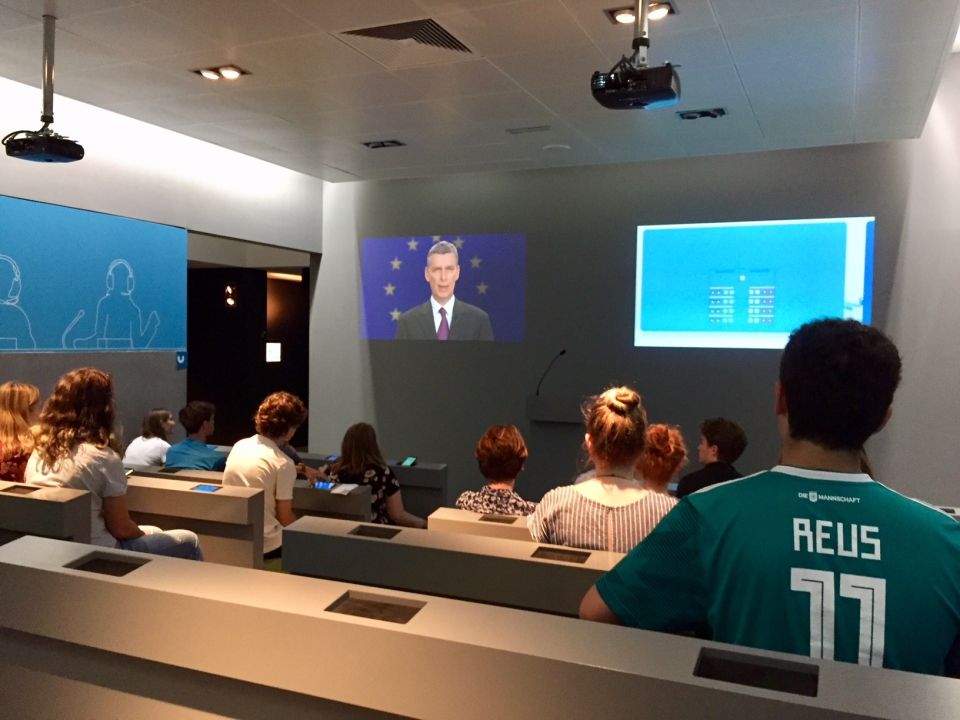
Related Posts

A Conversation With The Foreign Policy Youth Collaborative
Just about a year ago, a handful of friends who attended our CIEE World Government program in Brussels, Belgium, decided to organize to give youth a voice on world affairs... keep reading
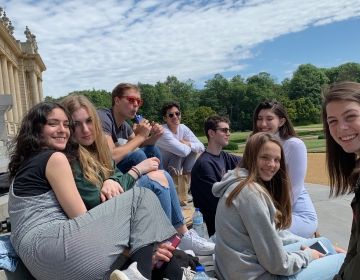
Friends/Amis/Freundes/Vrienden
Summer isn’t summer without amazing friends. This trip, I’ve made some of the best friends I’ve ever had. On the very first day, we were all exhausted and extremely jet-lagged... keep reading
The Last Friday Together
Who'd have thought that three weeks could go by so fast? During their final class on Friday, students worked on finalizing their pitch for a website designed to boost agency... keep reading
